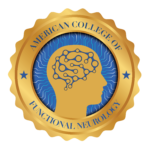Differences Between Credentials and Certifications
Credential
A credential is the highest level of proof supporting an individual’s educational or professional achievement. The credential is issued by a third party with authoritative power and is proof of an individual’s qualification or competence in a given subject. Possessing a credential not only helps one to prove competency and capability in a given field but also demonstrates to one’s community and employers that the individual is competent, properly trained and equipped to carry out his or her duties. To sit for a credential exam, an individual must possess certain requirements — a set level of education, experience or a combination of both. Credentials serve as verification that a professional has achieved a baseline level of competency in his or her subject matter. With credentialed staff members, employers are assured of having a workforce of employees that are capable of handling whatever challenges their job responsibilities present.
Through the ACFN, credentialing is a process in which a non-governmental agency validates, based upon predetermined standards, an individual’s knowledge and qualifications for practice in environmental health and protection. An ACFN credential serves to verify that an individual has achieved a baseline level of professional competence in functional neurology or a neurological subspecialty.
ACFN’s credentials are nationally recognized and validate an individual’s specialized knowledge and experience in clinical neuroscience, functional neurology, and health care. Studying for and maintaining an ACFN credential keeps one up to date on the latest developments in the field of functional neurology and demonstrates one’s commitment to life-long learning.
Certification
Certification is another form of validating an individual’s educational or professional achievement. Although not as scrutinous or lofty as credentialing, certification is still a formal process that recognizes and validates an individual’s qualifications in a certain subject. Certification is awarded to an individual once the issuing agency can objectively quantify that he or she is qualified to perform a job or task. This is often done through educational achievement. Certificates verify that a professional has achieved a baseline level of competence in a complicated subject area and assures employers that an individual is capable of handling the challenges his or her job responsibilities present. Certifications are earned from a professional society and must be renewed periodically, generally through completed continuing education units.
Certificates verify that a professional has achieved a baseline level of competence in a complicated subject area and assures stakeholders that an individual is capable of handling the challenges within the scope of their certification. Certifications are earned from a professional society and must be renewed periodically, generally through completed continuing education units.
Certificate Program
A certificate program is a program of education that results in the issuance of a certificate of completion rather than an educational degree. Often these certificates are issued by the educational institution, therefore do not carry the weight of a credential or a certification. Certificate programs educate individuals about one particular aspect of their field and supplement an individual’s prior education — preparing him or her to work in another arena within the same professional field.
Certificate program definitions are changing and often misused. A certificate of completion is issued at the end of a course, and no additional renewals are required.
Adapted from the National Environmental Health Association
